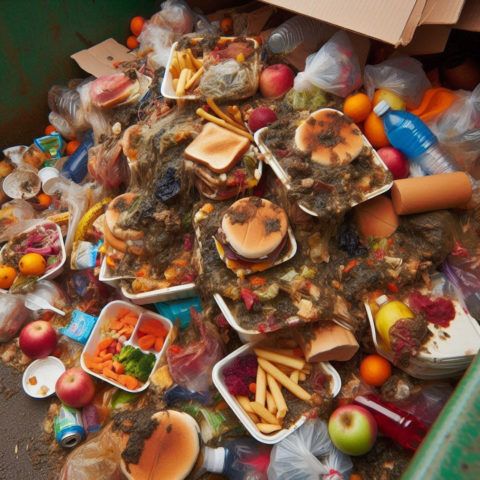To tax or not to tax, that is the question. ALASDAIR THOMPSON asks whether a tax on soft drinks will help curb obesity in NZ, or simply raise the government’s tax take.
 Capital and Coast and the Hutt Valley District Health Boards (DHB) have asked the Minister of Health David Clark for a new tax on all soft drinks, both with and without sugar. You see, they are all bad for us.
Capital and Coast and the Hutt Valley District Health Boards (DHB) have asked the Minister of Health David Clark for a new tax on all soft drinks, both with and without sugar. You see, they are all bad for us.
Even artificial sweeteners boost appetite and, say the DHB’s, they cause tooth decay.
There is no doubt soft drinks, and the loads of sugar in them, do cause obesity when consumed often. One serious cartoon I saw published by UK Cancer Research depicts a young person drinking a bathtub of sugary pop annually.
 Newshub reported in October 2017 that New Zealand had the third highest rate of obesity behind the USA and Mexico.
Newshub reported in October 2017 that New Zealand had the third highest rate of obesity behind the USA and Mexico.
The DHB’s suggest this generation of New Zealand children could be the first to live shorter lives than their parents. A lot of that is apparently down to over-consumption of sugary soft drinks.
Meanwhile, the World Health Organisation (WHO) says there is clear evidence taxes or subsidies influence buying behaviour.
Well yes, one would expect that, but WHO should add, ‘if all other things remain equal’.
 If you tax the living daylights out of cigarettes and tobacco, more people make the huge commitment it takes to quit. But the massive taxes on petrol (76.457cents/litre or 87.957cents/litre in Auckland) barely have any effect on its consumption.
If you tax the living daylights out of cigarettes and tobacco, more people make the huge commitment it takes to quit. But the massive taxes on petrol (76.457cents/litre or 87.957cents/litre in Auckland) barely have any effect on its consumption.
It all has to do with the economic concept known as price elasticity versus its inelasticity. In short, this means some things are so needed or wanted by people that they will pay higher prices, whereas other things not so wanted or needed will be cut back on when the price rises.
It was only when tobacco taxes got really high in New Zealand that there was a marked cutback. Addiction is a factor. Substitution is another factor. Buy fewer soft drinks but make up cheap sugary cordial instead.
 The DHBs also overlook the impact of commercial pricing policy changes manufacturers of soft drinks can make when a government imposes a new tax on their product.
The DHBs also overlook the impact of commercial pricing policy changes manufacturers of soft drinks can make when a government imposes a new tax on their product.
Pricing policy and relative prices are important factors. Relatively cheap soft drinks, compared say to water or milk, are not overly impacted by a 10 percent tax. And if the manufacturer re-configures prices across their range of drinks, it is possible they can even affect an increase in sales despite the tax.
Katherine Rich, chief executive of the New Zealand Food and Grocery Council, explains how the 10 percent tax imposed on soft drinks in Mexico turned out. Initially, she says, there was a drop off in sales, but over subsequent years sales on carbonated soda drinks (CSD) bounced back and increased despite the tax.
 Mexican beverage manufacturers changed their pricing policy on the mix of their entire beverage range. They greatly increased the prices on all the beverages like water and sports drinks which had little or no sugar in them. All their zero or low sugar drinks became dearer than the full sugar ones.
Mexican beverage manufacturers changed their pricing policy on the mix of their entire beverage range. They greatly increased the prices on all the beverages like water and sports drinks which had little or no sugar in them. All their zero or low sugar drinks became dearer than the full sugar ones.
Initially beverage consumption fell 1.9 percent in 2014, no change in 2015, a 1.6 percent increase in 2016 and a 0.1 percent increase in 2017.
Despite being more expensive with higher mark-ups, zero and low sugar drinks are back in growth. The exercise of imposing a 10 percent tax on soft drinks has not, except in the very beginning, reduced soft drink consumption in Mexico. But it has increased Mexican government tax revenue by NZ$7.7 billion, 62 percent of which is being paid for by the lowest income Mexicans.
 A New Zealand Ministry of Health report in October 2017 said evidence for a sugar tax was inconclusive.
A New Zealand Ministry of Health report in October 2017 said evidence for a sugar tax was inconclusive.
In the meantime, Health Minister David Clark finds himself in a bit of a bind. He said, ‘Labour pledged to the public we wouldn’t introduce any new taxes in our first term in office’. A study is underway, he said.
Supporting a tax on soft drinks is an appealing idea but as yet there is insufficient evidence it would be good public policy achieving the desired effect.
Let’s get this right. Complete the study that’s underway and base policy on solid information. Right now the only guarantee is that it would increase the government’s tax take.















